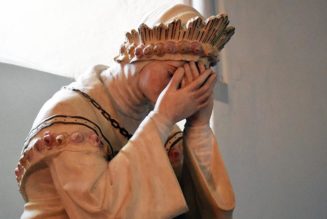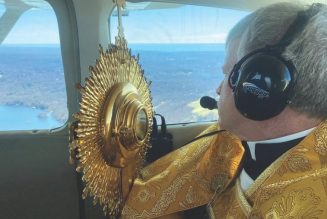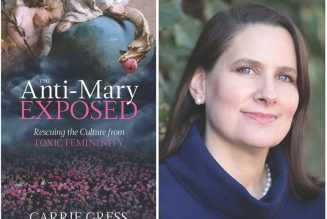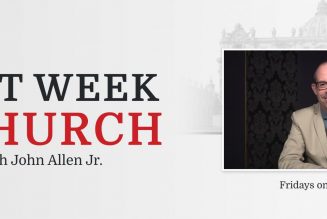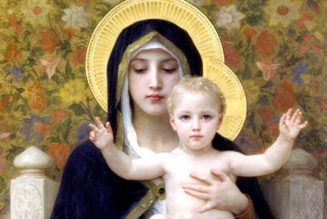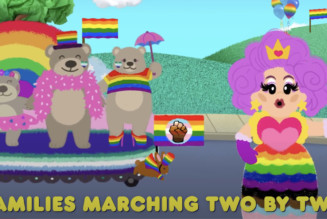
The readings for the 13th Sunday of Ordinary Time, Year C, Jesus and St. Paul offer a picture of freedom that cuts against our instincts about what makes us free. Freedom does not mean doing what you want, it means being able to embrace what is best. And to do that, one thing is necessary.
The Gospel and Epistle reading paint a picture of radical freedom.
The bracing images of freedom Jesus shares tell us who are and who we will be.
“Foxes have dens and birds of the sky have nests, but the Son of Man has nowhere to rest his head,” he says. We are companions of Jesus on the open road, free of attachment to physical comfort to share his comfort instead.
“Let the dead bury their dead. But you, go and proclaim the kingdom of God,” he says. We are the advance crew preparing for the king of the universe, free from the constraints of society.
“No one who sets a hand to the plow and looks to what was left behind is fit for the kingdom of God,” he says. We are workers preparing the soil for the Sower, but in order to guide the plow well, we have to be free to keep our eyes forward, always forward.
This is the life of a free Christian. A life where I make my own decisions, unconstrained, and productive, for God.
“For freedom Christ set us free,” St. Paul says. “So stand firm and do not submit again to the yoke of slavery.”
That’s a beautiful vision of freedom. So why doesn’t Christianity feel like freedom?
In fact, Christianity often feels a lot like a yoke of slavery to us.
- We don’t experience our membership in Christ as life on the open road with Jesus: We think of it as life stuck in the granite walls of the church listening to orders from the priest.
- And we don’t feel like the advance crew of the king of heaven: we feel like the only people not allowed to have fun with the rest of the world.
- But maybe we do feel like we are working a plow: But we feel like it’s a yoke around our neck forcing us to follow the straight lines someone else devised for us.
How is this freedom? St. Paul tells us the one thing we need to be free: love.
In the Second Reading he warns us not to use our freedom “as an opportunity for the flesh,” that is, a way to feed our appetites, but “rather, serve one another through love.”
Service is freedom from slavery to selfishness, and that means freedom to love. Freedom entails devotion. To be free to play the piano, you have to be devoted enough to the craft to endure the discipline it takes to learn how to play the instrument. And to be free to follow and serve, you have to be love God and neighbor more than yourself.
The more we act to feed our appetites, the more enslaved to our appetites we will be. The more we serve our neighbor, the more free we will be to serve. We strengthen temptation by indulging it, which weakens our will. We strengthen our will by insisting on it, which weakens temptation. Sinning makes you a slave of sin. Resisting makes you a friend of Christ.
The logic may be obvious, but it certainly doesn’t come to us easily. We have to learn it the hard way: through the cross.
The Sunday Gospel begins ominously.
“When the days for Jesus’s being taken up were fulfilled, he resolutely determined to journey to Jerusalem,” it says.
Shortly before this passage, Jesus had told Apostles for the first time what his real mission is: “The Son of Man must suffer greatly and be rejected by the elders, the chief priests, and the scribes, and be killed and on the third day be raised.”
He is going to Jerusalem to freely die, and he won’t let anything stop him. Not a Samaritan village that rejects him, and not newcomers who want to join him on their terms. The whole thing is supposed to convey the sense that Jesus is relentlessly fixed on his passion as his one goal, and only those who are as relentless as he is will end up where he is going.
Christ will be a new Passover Lamb, but the apostles expect something totally different: a new Elijah.
In Jesus’s time it was widely expected that the prophet, Elijah, who departed the earth in a chariot of fire, would return the same way.
This Sunday’s Gospel passage comes at the end of a chapter that is haunted by the ghost of Elijah. Elijah is mentioned several times in Chapter Nine: people tell Herod Jesus is Elijah; the apostles tell Jesus that people think he is Elijah, and then Elijah himself appears at the transfiguration.
Jesus wants to quash those rumors utterly, not only because he is not Elijah, but because his plan is totally different from Elijah’s.
- Elijah called down fire on his opponents. Jesus won’t do that, he tells John and James in the Gospel this Sunday.
- Elijah fled his death when his life was threatened and slays rival priests. Jesus will march directly into his death at the hands of rival priests.
- Elijah allowed his follower to return home first. Jesus doesn’t.
For us, it is not the destruction of our opponents that makes us free, but the destruction of our selfish desires that makes us free.
“You shall love your neighbor as yourself,” says St. Paul in the Second Reading. “But if you go on biting and devouring one another, beware that you are not consumed by one another.”
We are invited to see our lives as part of Christ’s mission of love, the same relentless journey to the end.
We are not what we say we are; we are who our actions make us. Our actions make us either egotists closed in on ourselves and stuck in the traps sin sets for us, or partners in Jesus Christ in his mission to save the world.
If we want to be more free — more free to do great things and more free to humble ourselves — we have to actually do gutsy, sacrificial things. When we do, when we follow Christ and strive for something beyond ourselves and bigger than ourselves, we tap into a near-infinite source of inspiration and love, making the steepest heights of personal perfection scalable.
“For freedom Christ set us free,” Paul said. It’s true: Only the cross can destroy our selfishness, only love can embrace the cross, and only a free person can love.
Join Our Telegram Group : Salvation & Prosperity

